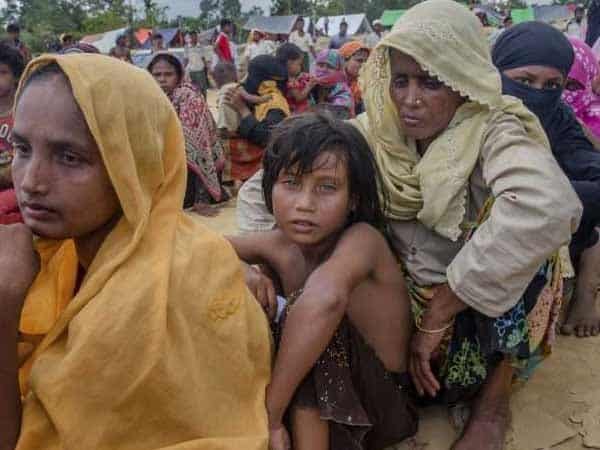Dhaka [Bangladesh]: Bangladesh and Myanmar have agreed on a two-year timeframe for the repatriation of hundreds of thousands of Rohingya refugees.
The repatriation process is expected to start on January 22.
“The repatriation would be completed preferably within two years from the commencement of repatriation,” said Bangladesh foreign ministry in a statement yesterday, following the first joint working group meeting (JWG) in Naypyitaw on January 15-16.
The two countries agreed that the verification of the refugees will be based on the family as a unit.
Earlier in December last year, Myanmar Minister of Social Welfare, Relief and Resettlement Dr Win Myat Aye said a group of 450 Hindu refugees will be allowed back across the border to Burma on 22 January as the first step in the repatriation process.
Two camps have been set up by the Myanmar authorities, one at Taungpyoleiwei in northwestern Rakhine State for those who will return overland and second in Ngakhuya, Maungdaw Township, for those returning by sea or waterways on January 22.
The decision was taken by the minister following a meeting with the Myanmar National Human Rights Commission (MNHRC).
A Bangladeshi official said the first list for repatriation of Rohingya refugees who entered into Bangladesh after fleeing violence in Myanmar’s Rakhine State, will contain 100,000 names.
The United Nations General Assembly (UNGA) also urged Myanmar to end the military campaign against Muslim Rohingyas.
Myanmar and Bangladesh had earlier in December last year, formed Joint Working Group (JWG) to handle the repatriation of Rohingya refugees.
The crucial JWG with 15 each from Bangladesh and Myanmar will oversee the repatriation of over 6,00,000 Rohingya refugees who have taken shelter in Bangladesh to escape ethnic violence in the latter.
More than 655,000 Rohingyas have crossed into Bangladesh since August 25, 2017, escaping a military crackdown in Rakhine state, which many countries and human rights bodies have described as ethnic cleansing.
The military action, which was triggered after their posts became targets of terrorist attacks, invited ire of the international community.
On October 12, a United Nations’ report based on interviews conducted in Bangladesh found that brutal attacks against Rohingyas in the northern Rakhine state have been well-organised, coordinated and systematic, with the intent of not only driving the population out of Myanmar but preventing them from returning to their homes.
The Rakhine state is home to a majority of Muslims in Myanmar, who have been denied citizenship and long faced persecution in the Buddhist-majority country, especially from the extremists.(ANI)

